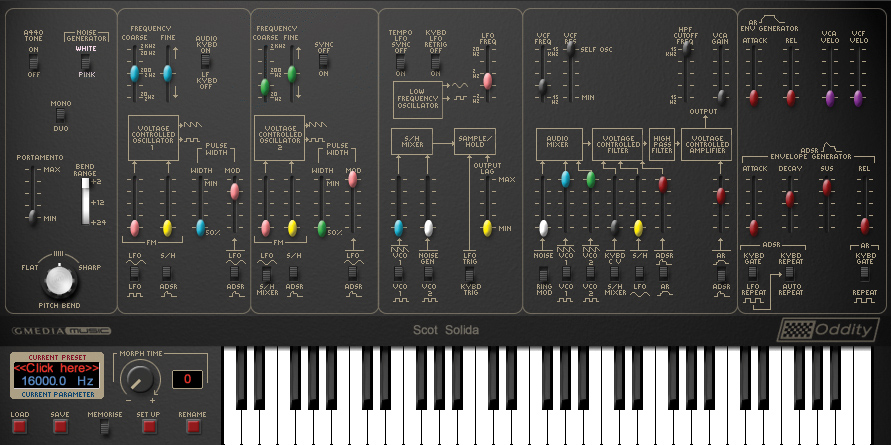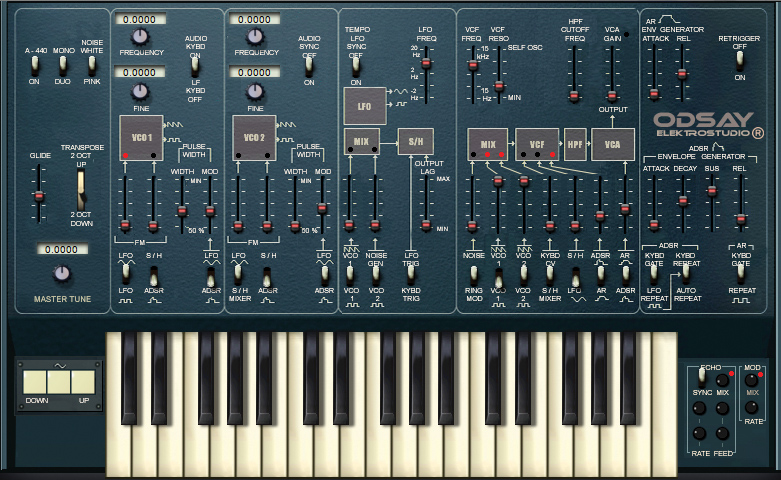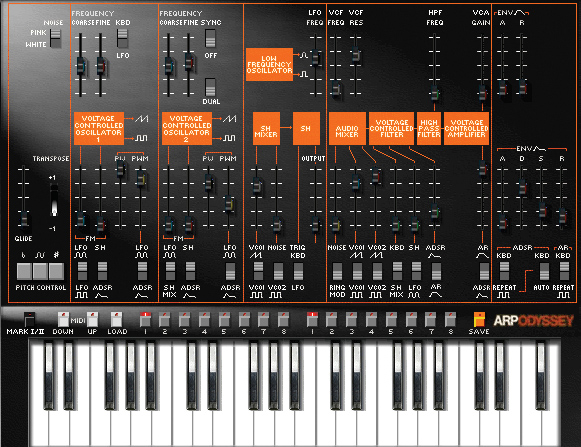Blast from the past: ARP Odyssey
ARP's answer to the Minimoog refuses to be consigned to the history books, revived for the modern age in both hard and soft incarnations

Image courtesy of Perfect Circuit Audio
Budding synthesists had few options back in '72. Massive modular synthesizers had been around for a while but were expensive and cumbersome, less suited to the stage than they were to the studio.
The EMS VCS3 was small but unstable, and ARP's 2600 - with its patch cables and separate keyboard - was less immediate than the reigning king of the road, the Minimoog, the only truly portable all-in-one option.
Until, that is, the ARP Odyssey. This wedge-shaped wonder was lighter than the Minimoog, yet offered far more bells and whistles with which to craft one's, er, bells and whistles. More than that, the Oddy's dual oscillators gave musicians rock-solid tuning stability, along with a suspiciously familiar-sounding 24dB resonant low-pass filter, high-pass filter, FM, oscillator sync, ring modulation, dual envelope generators (AR and ADSR) and a noise generator that could produce sample and hold effects.
Flexible and powerful, the Odyssey's panel was relatively immediate, with colourfully capped sliders providing a supremely tweakable interface.
It was, to be sure, far more capable than Moog's mighty Mini, even if it lacked that beefy third oscillator (the Odyssey's LFO was a dedicated job). Its basses might not have been as burly, but they were sharp, tight and punchy. And if the leads weren't quite as present, they could be far more complex.
"Flexible and powerful, the Odyssey's panel was relatively immediate, with colourfully capped sliders providing a supremely tweakable interface."
If it had any drawbacks, it was that it lacked the left-hand controllers - no mod or pitch wheels. Pitchbend was provided by a simple potentiometer, later replaced by ARP's own Proportional Pitch Control (PPC) pad, a bit of pressure-sensitive rubber that seemed to confirm that ARP was simply trying to be… well, not Moog. In addition, the sliders were not exactly the most precise means by which to dial in a sound - and they have aged horribly, becoming scratchy and jumpy.
Want all the hottest music and gear news, reviews, deals, features and more, direct to your inbox? Sign up here.
There were a number of variants of the Odyssey across its eight-year production run. Early models were white, replaced by black and gold versions in the mid-period, and finally, black and orange.
The Odyssey was embraced by two generations of musicians: the proggers and rockers of the early 1970s loved them almost as much as the new wavers of the 1980s. Edgar Winter, Tony Banks and Joe Zawinul are but a few of the former, supplanted by Devo, Ultravox and Numan in the latter camp.
Today's would-be Odysseans can avail themselves of a handful of software emulations, one of which - GForce's Oddity - has been hailed by users of the real deal. If that isn't enough, Korg recently announced plans to sell a new version of the original hardware.
Three great ARP Odyssey emulations

GForce Oddity, £100
A stunning recreation from the folks behind impOSCar, the Oddity has all of the features of the original, plus modern niceties such as patch storage and recall, preset morphing, and host-syncable LFO. Flying Sliders allow you to grab one or more sliders and throw 'em, recording the results. A brilliant clone that's been embraced by users of the real thing.
Find out more about GForce Oddity

Elektrostudio Odsay, Free
If you don't have the cash for Oddity (and assuming you're on Windows), you can avail yourself of the SynthEdit-based ODSay, a spiffy Odyssey clone from Elektrostudio. Good sound, the right features and a nice GUI make this one a must try if your system can run it. 32-bit environment or bridge required.
Find out more about Eletrostudio Odsay

Bristol ARP Odyssey, Free
Linux fans don't have as many options, but what they do have is almost invariably free and open source. That includes the gorgeous Bristol ARP Odyssey, a feature-for- feature copy of the real deal that comes as part of the whopping Bristol synths collection. It's a good resource for the same sorts of sounds as you'd get from an actual Odyssey.


Computer Music magazine is the world’s best selling publication dedicated solely to making great music with your Mac or PC computer. Each issue it brings its lucky readers the best in cutting-edge tutorials, need-to-know, expert software reviews and even all the tools you actually need to make great music today, courtesy of our legendary CM Plugin Suite.
